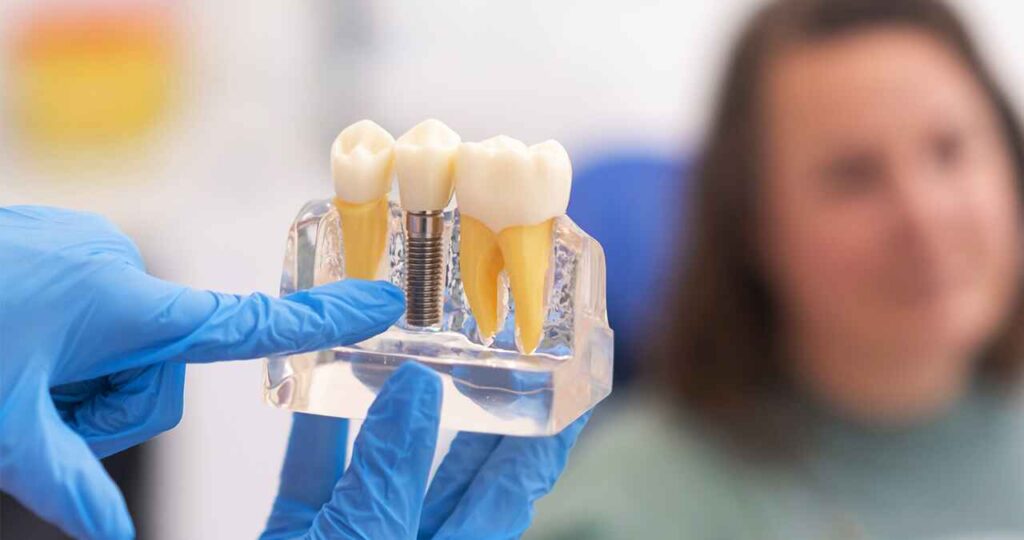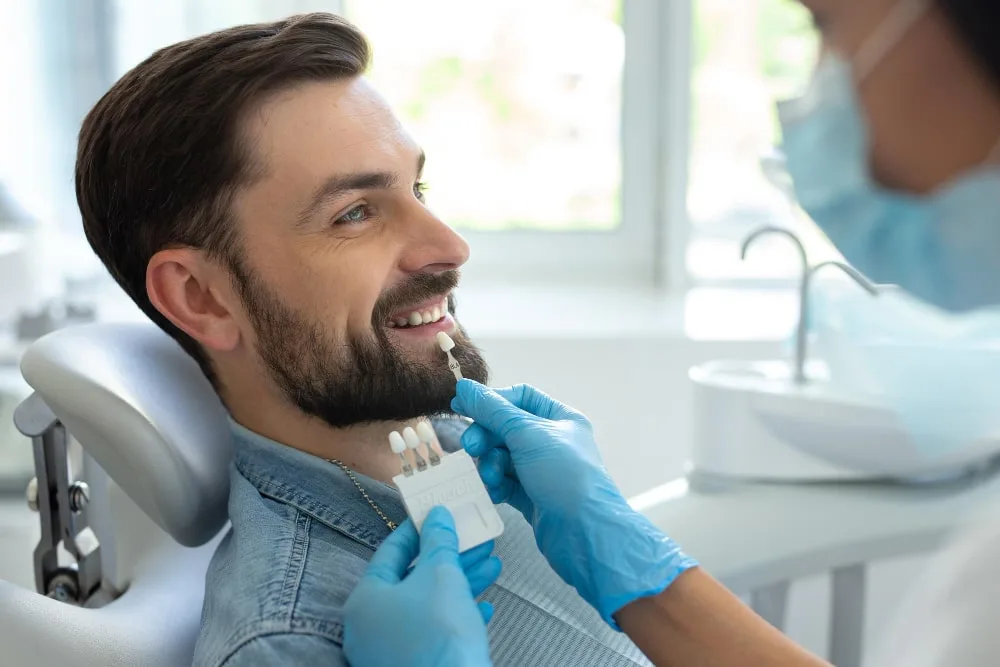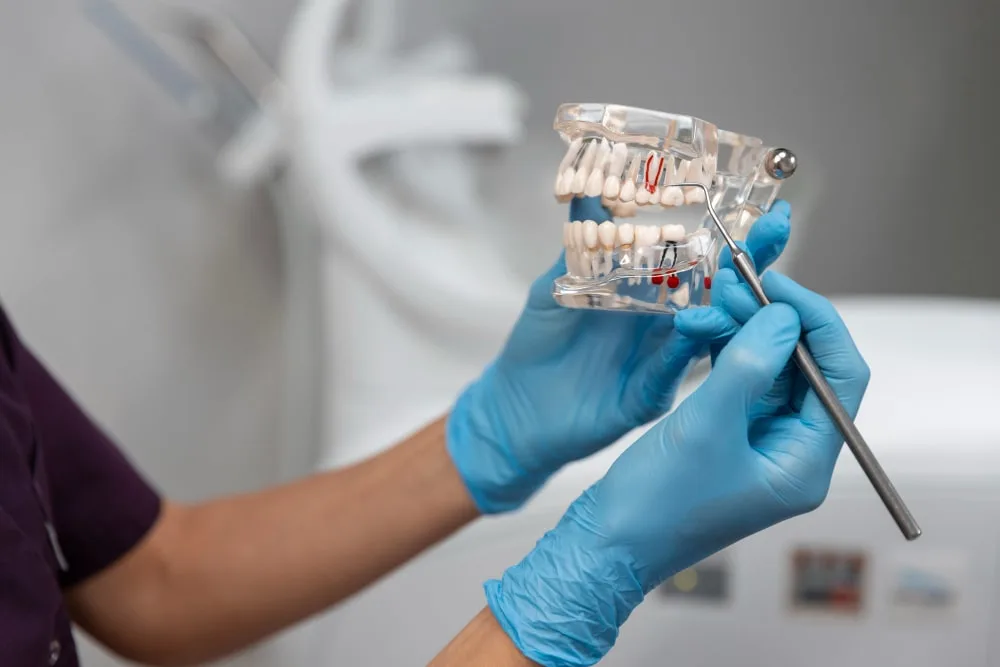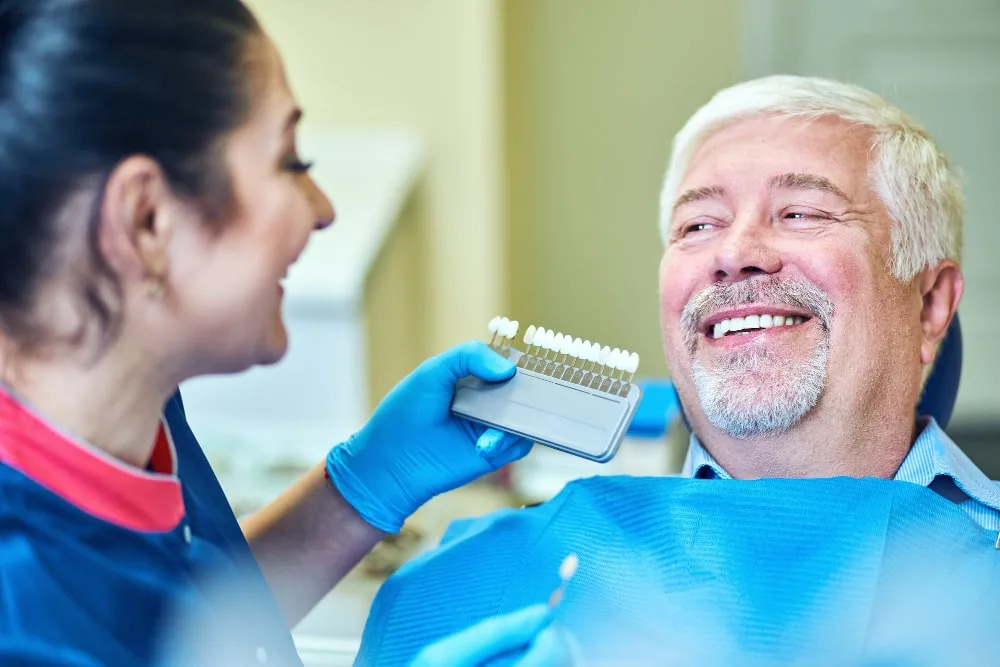If you’ve recently gotten a dental implant or are planning to, you’re likely asking the same question many patients have: “How long until it feels like my own tooth?” It’s a valid concern, you want to eat, speak, and clean your teeth without the discomfort.
Healing varies by person, but there’s a general timeline to guide expectations. Below, we’ll cover the typical week-by-week recovery, what “normal” really means, factors that influence healing, and practical tips for a smooth recovery.
What Happens After a Dental Implant Surgery?
After surgery, your body begins healing around the implant. Initial sensations may feel strange, which is completely normal. Every day experiences in the first few days include:
- Mild to moderate discomfort once the anesthetic wears off (usually manageable with recommended pain medication).
- Swelling and bruising, peaking around days 2–3 before improving.
- Minor bleeding or oozing for the first 24–48 hours.
- Numbness for a few hours from local anesthesia.
- Unusual sensations like pressure, tightness, or awareness of the implant, especially if a healing cap or temporary crown is in place.
Your dentist may place a healing abutment to shape the gums, provide a temporary crown (in some cases), and give aftercare instructions for pain, hygiene, diet, and activity. After the first few days, discomfort typically eases, making daily routines more manageable.
How Long Does It Take for a Dental Implant to Feel Normal?
The healing process occurs in distinct stages, each bringing you closer to a fully functional, natural-feeling implant. Here’s what to expect at every phase of your recovery:
| Timeframe | What to Expect | Key Notes and Tips |
| Week 1 |
|
|
| Week 2-4 |
|
|
| 1-3 Months |
|
|
| 3-6 Months |
|
|
| Beyond 6 Months |
|
|
What Can Affect the Timeline?
Several factors can influence how quickly a dental implant starts to feel like a natural tooth. These can be grouped into health and lifestyle considerations, jaw and bone conditions, and surgical or restorative details.
Health & lifestyle
- Smoking or vaping: Slows healing and increases complication risk.
- Diabetes or immune conditions: May extend healing time if not well controlled.
- Medications and bone health: Certain drugs and low bone density can affect integration.
Mouth & jaw factors
- Jawbone quality and quantity: Denser bone (often in the lower jaw) may integrate faster.
- Grafting or sinus lift: Adds healing time before final restoration.
- Implant location: Front teeth and upper jaw can require longer integration periods.
Surgical & restorative factors
- Surgeon skill and planning: Precise placement and a stable implant improve comfort and predictability.
- Implant system and size: Chosen based on your anatomy and needs.
- Bite forces and habits: Clenching/bruxism can stress a new implant; a nightguard may be recommended.
- Post‑op care: Consistent hygiene and follow‑ups help prevent setbacks.
Tips for a Smooth Healing Journey
Following the right care steps after dental implant surgery can significantly improve comfort and speed up recovery. Here’s what to focus on during the early and later stages:
- Apply cold compresses during the first 48 hours to control swelling.
- Sleep with your head slightly elevated to reduce swelling.
- Eat only soft, cool, or room-temperature foods; avoid hard, hot, or spicy items.
- Do not smoke or vape during the healing period.
- Avoid strenuous activity or heavy lifting for at least a few days.
- Brush gently around the implant site and keep the rest of your mouth clean.
- Rinse with warm saltwater if recommended by your dentist.
- Avoid chewing directly on the implant until cleared by your dentist.
- Take all medications as prescribed and complete any antibiotics.
- Keep all follow-up appointments for healing checks and adjustments.
Read more: How Much Do Mini Dental Implants Cost? Complete Guide
The Pros and Cons of Titanium Dental Implants
When to Call Your Dentist
Call your dentist right away if you experience pain that doesn’t improve or worsens after a week, swelling that increases after the third day, fever, chills, or persistent bleeding. Other warning signs include pus, a bad taste or odor from the site, a loose implant or crown, sudden bite changes, numbness or tingling beyond two days, or gum recession exposing metal or causing sensitivity. Early evaluation can prevent small issues from becoming bigger problems.
Final Word
Most patients find that a dental implant starts to feel normal within a few months, and many reach full comfort once the final crown is placed, often between 3 and 6 months. Your exact timeline depends on your health, bone quality, surgical plan, and how closely you follow aftercare instructions. If you’re preparing for an implant or are in the middle of healing, keep your follow‑ups, protect the site, maintain excellent hygiene, and communicate any concerns early.
Experience Expert Implant Care with Dr Javadi
With years of expertise and a commitment to patient comfort, Dr. Javadi at Orchid Periodontics and Dental Implants ensures your implant journey is smooth from start to finish. Call or click here to schedule your appointment now and enjoy the benefits of a complete, healthy smile.




